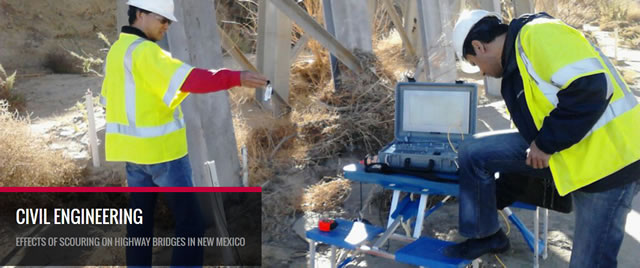
Civil Engineering ETDs
Publication Date
Summer 8-1-2023
Abstract
This study aims to identify how variabilities in wastewater process configurations impact the biocrude yields from sludges processed and stabilized by hydrothermal liquefaction. Clean and renewable energy sources are vital to ensure a sustainable future. However, the current consumption of fossil fuels limits the ability to achieve this goal. Hydrothermal liquefaction (HTL) is a thermochemical process that converts wet biomass to valuable biocrude oil and biochar while reducing solid masses. Wastewater sludges were sampled across three facilities with varying influent design capacities and biological treatment configurations. Lipids extracted via solvent extraction and biocrudes produced from HTL were determined gravimetrically. Relative ester content was analyzed using gas chromatography. Results found that primary sludges from the sampled facilities yielded up to 44% higher mass of biocrude than waste-activated sludges. Additionally, the relative ester content of C16:0 - C18:3 fatty acids from lipids and biocrudes revealed statistical similarities across the sludge types and facilities. This suggests that HTL produces a biocrude whose yield is influenced by sludge treatment process configuration, but ester quality remains similar across facilities. These results help discover how biocrude products from HTL of wastewater sludges are impacted as specific wastewater processes vary and emphasize the valorization of wastewater sludge as a resource for energy resource recovery.
Keywords
HTL, sludge, biocrude, oil, ester, wastewater
Document Type
Thesis
Degree Name
Civil Engineering
Level of Degree
Masters
Department Name
Civil Engineering
First Committee Member (Chair)
Dr. Anjali Mulchandani
Second Committee Member
Dr. José Cerrato
Third Committee Member
Dr. Andrew Schuler
Recommended Citation
Abadam, Carl L.. "HYDROTHERMAL LIQUEFACTION OF WASTEWATER SLUDGES FOR ENERGY RESOURCE RECOVERY." (2023). https://digitalrepository.unm.edu/ce_etds/299
